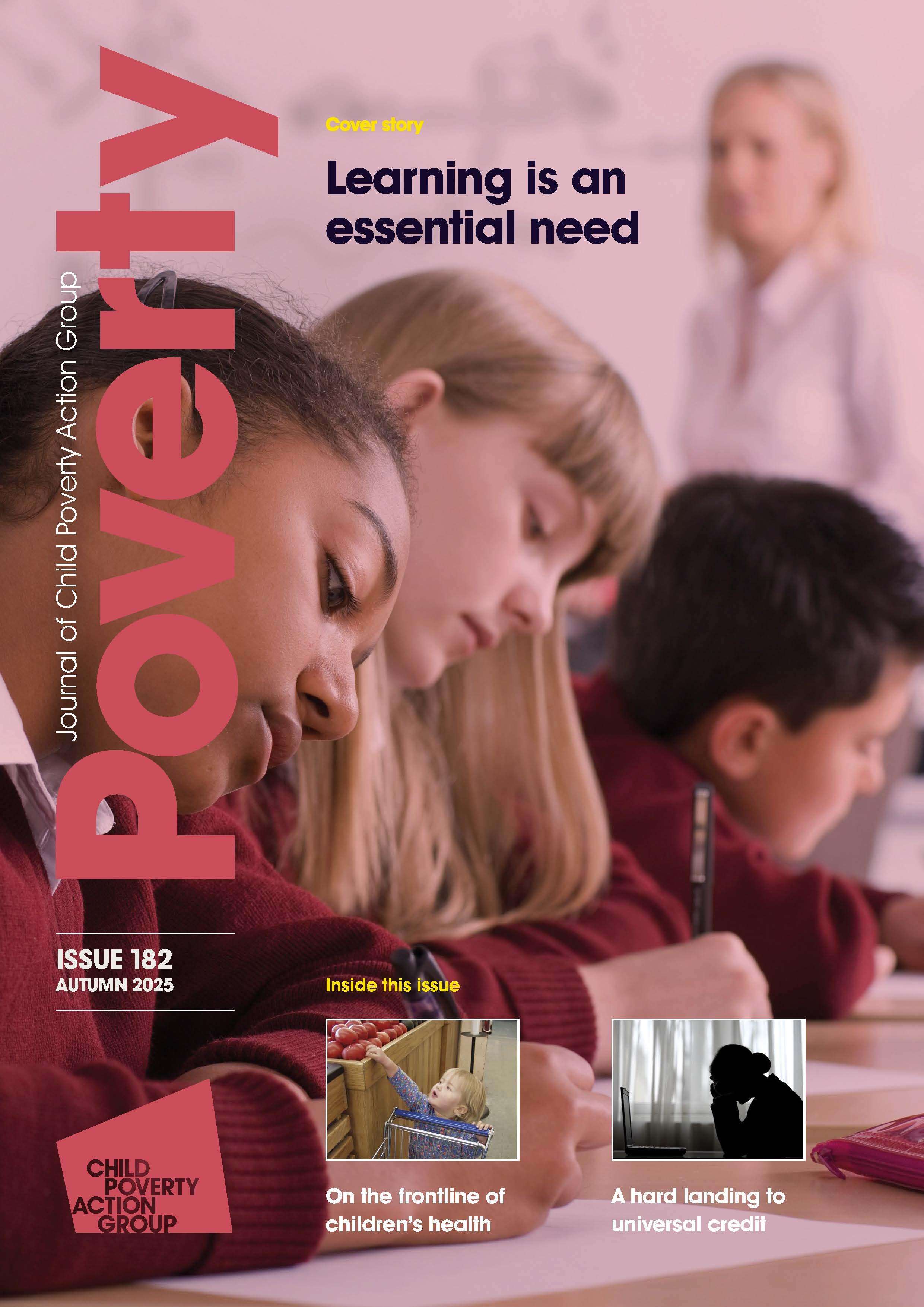CPAG's Poverty journal
Our journal aims to stimulate debate about the nature, causes and consequences of child poverty in the UK, and potential solutions.
Published three times a year, CPAG's Poverty journal carries articles and features to inform, stimulate and develop debate about the nature and causes of poverty. Each issue includes three in-depth features, reviews of the latest poverty research, analysis of child poverty statistics, and views from practitioners and young people themselves.

Inside issue 182 - autumn 2025:
Read articles from the current and past issues of the Poverty journal
To view the Poverty journal, you'll need to be either a subscriber or a member of CPAG.